As the cultural conversation about menopausal health finally becomes more commonplace, so do the products geared toward those going through menopause. Chief among them are menopause supplements, marketed to regulate mood, sleep, body temperature, and other symptoms associated with the condition. These supplements (which can include vitamin, mineral, and herbal ingredients) overwhelmingly dominate the menopause market, accounting for 95.26% of the $16.9 billion global menopause market in 2023, according to data published by Grand View Research.
Once you factor in the controversy regarding hormone replacement therapy (HRT) — including some research that indicates a slight increased risk of breast cancer — so-called “natural” menopause supplements can seem even more appealing. But according to experts, there are several good reasons to consult a doctor before taking these unregulated powders and pills.
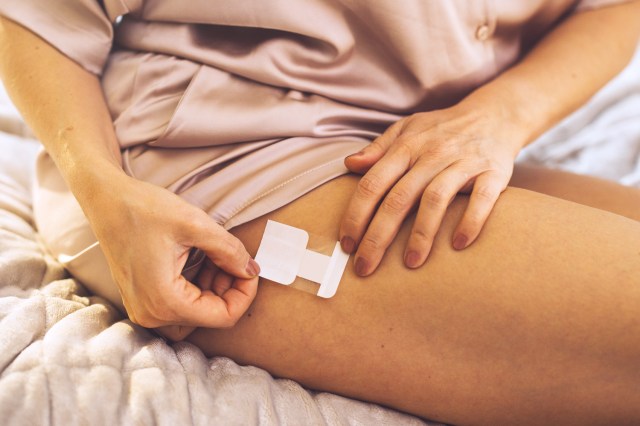
What’s the Difference Between Hormone Replacement Therapy and Menopause Supplements?
First, it’s important to know the main difference between hormone replacement therapy (HRT) and menopause supplements. HRT is an evidence-based treatment with the estrogen hormone, whereas supplements are not regulated or very well studied. While HRT is generally well tolerated, Dr. Gunvor Ekman Ordeberg, OB-GYN and co-founder of DeoDoc Intimate Skincare, says, “There is a slight increased risk of breast cancer with hormone replacement therapy (HRT) which depends on the type of HRT that is used and the duration of taking it.” (More on this later.) That’s a big reason why menopause supplements are becoming more popular.
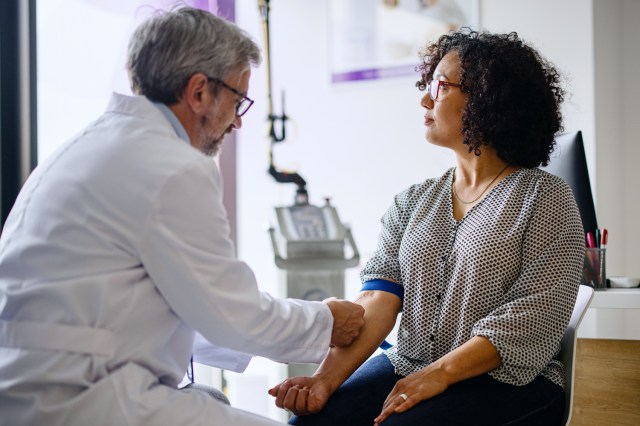
Do You Need Menopause Supplements?
Some menopause supplements tout a host of vitamins and minerals (including iron, vitamin D, and vitamin B12) as a way of addressing deficiencies in the body associated with menopause symptoms. But Dr. Ordeberg says there are no general deficiencies of any vitamin or mineral in menopausal patients, and therefore, no magic combination of vitamins and minerals is helpful for this population. Individual patients may experience vitamin and mineral deficiencies, but the type of deficiency will vary greatly from patient to patient, so it’s best to rely on the expertise of health care providers to identify and treat each deficiency based on individual (and changing) need.
If you do want to take vitamin and mineral supplements while menopausal, Dr. Karla Loken, D.O., OB-GYN, FACOOG, vice president of medical affairs and clinical operations at HerMD, says there is “very little risk with these supplements [without phytoestrogen] if taken as instructed on the bottle.” That said, though these supplements alone may be low risk, and the body efficiently eliminates what is not needed via the kidneys, Dr. Loken maintains that “someone on these supplements should get labs to be sure their levels don't get too high, as very high levels of vitamins or minerals can lead to problems. Another reason to inform your doctor you're taking these supplements is that they can interact with other medications.”
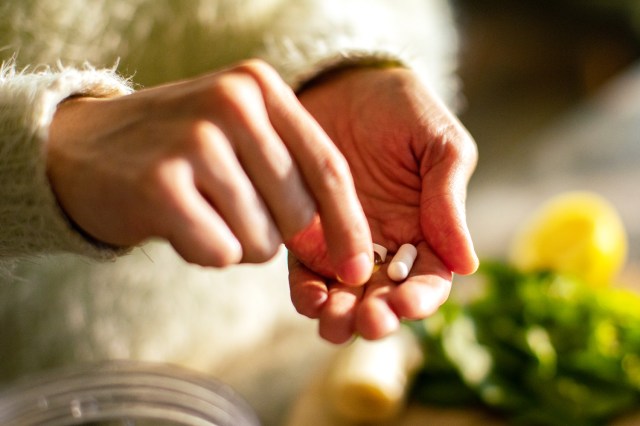
What Are the Risks Associated With Menopause Supplements?
Given that those in menopause can experience a decreased level of estrogen, menopause supplements featuring phytoestrogens (plant compounds that mimic estrogen when broken down in the body) may be particularly appealing. But according to Dr. Loken, there are risks associated with taking phytoestrogens, which she points out are not regulated by the FDA.
“What people don’t realize is once the plant-based estrogen is through the liver, it is still turned into estradiol and can have the same effect as other synthetic estrogens,” she says. “Women who still have uteruses can be at increased risk of endometrial cancer if they are taking a lot of plant-based estrogen without progesterone. For this and other reasons, it’s important to talk with a health care provider before taking plant-based estrogen,” Dr. Loken says. “Additionally, women taking any supplements should occasionally have their liver function checked.”
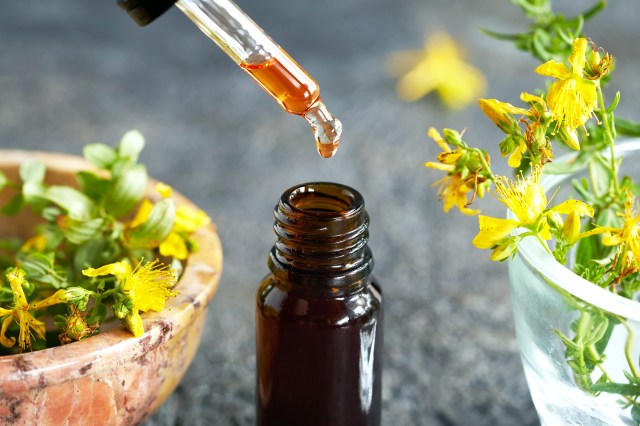
What About Herbal Menopause Supplements?
Another growing faction of the menopausal supplement market is that of herbal supplements such as black cohosh, St. John’s wort, and dong quai. Sometimes marketed as “herbal estrogen,” these supplements are said by some to change the effects of estrogen in the body and help address hot flashes, among other possible benefits. As with vitamin and mineral supplements, however, these supplements are not regulated by the FDA. As such, Dr. Ordeberg advises speaking with a health care provider before taking any herbal supplements.
Dr. Loken echoes this sentiment, particularly because some herbal supplements, such as St. John's wort and dong quai, can cause complications if a patient is on other medications. “They can cause liver enzyme elevations and bleeding in surgery,” she says.
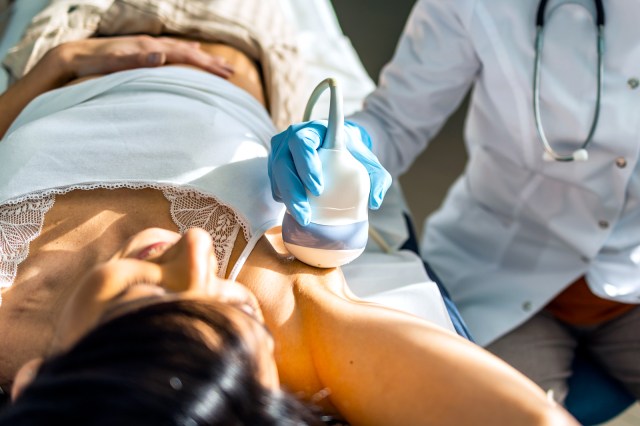
Are Menopause Supplements Linked to Breast Cancer?
Though small studies suggest menopause supplements are not linked to breast cancer, Dr. Ordeberg says we need more evidence before knowing whether supplements pose specific risks. “Supplements are not regulated by the FDA and there are no studies on their effects nor their long-term effects,” she says.
The good news, according to Dr. Loken, is that “more research is being done on specific cancer types to determine risk and benefit.” She points to academic centers, such as CU Denver, that have established complementary and alternative medicine centers, “where evidence-based medicine is practiced in conjunction with the patient’s gynecologist and breast oncologist.”

What Menopause Supplements Are Recommended?
Though both Dr. Ordeberg and Dr. Loken emphasize speaking with a medical provider before taking any supplements, neither medical professional puts much stock in the efficacy of menopause supplements. “It's fine to try some of the supplements out there for menopause and perimenopause, but no person needs them all. Each person has a different risk based on her own health, so that is the biggest factor,” Dr. Loken says, adding, “You will pee out most of the marketed supplements, and quite frankly, go broke making some quite expensive pee.”
Dr. Ordeberg and Dr. Loken are not alone in this regard: According to a review of studies by the nonprofit organization Susan G. Komen regarding supplements for relief of menopausal symptoms, there isn’t much data to support their use (though some favorable results were found with omega-3 fatty acid, red clover, and red clover extract).
“As a medical doctor and OB-GYN I cannot recommend any over-the-counter supplements as there is not sufficient evidence about their efficacy or studies that show these supplements have any benefit for menopausal people,” Dr. Ordeberg says. “What we do know that can help to alleviate menopause symptoms is exercise and physical activity. We also do know that hormone replacement therapy helps to alleviate various symptoms associated with menopause.”
This article is for general informational purposes only.
Affiliate Disclaimer Medical Disclaimer














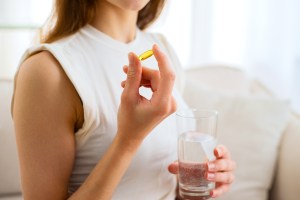

 Unique Beauty is free for all users.
Unique Beauty is free for all users.